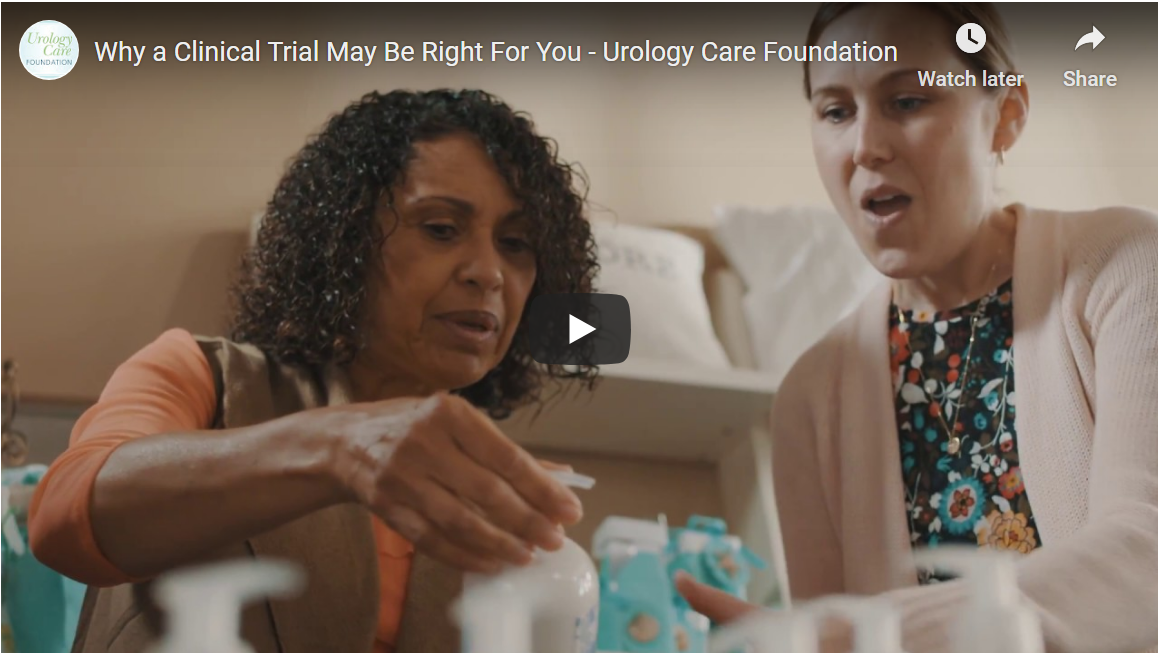Prostate Cancer Awareness Month shines a light on missed screenings during the pandemic
BALTIMORE, September 1, 2021 - Other than skin cancer, prostate cancer is the most common cancer in American men. Over the course of the COVID-19 pandemic, studies have shown many men are missing or delaying their routine health screenings, including preventative prostate cancer screenings – especially men living in low socioeconomic areas or who lack access to health care. It is important to maintain prostate cancer screenings, which includes a simple blood test and exam, as 1 out of 8 men will be told they have this disease during their lifetime.
Prostate cancer is the second leading cause of cancer death in American men, behind only lung cancer. Prostate cancer begins when cells in the prostate gland start to grow out of control. The prostate is a gland found only in males. In its early stages, prostate cancer often has no systems, which is why it is so important to catch this disease early, when it is more treatable. Some men are at a higher risk for being diagnosed with prostate cancer. This includes African American men and men with family history. According to the American Urological Association, the discussion about screening can take place as early as:
- Age 55 for men who are at average risk of prostate cancer and are expected to live at least 10 more years.
- Age 40-45 for men who at a higher risk of developing prostate cancer. This includes African American men and men who have a relative (father, brother, uncle, son) diagnosed with prostate cancer.
“It is important for patients to continue to receive appropriate prostate cancer screening in health care environments that meet COVID-19 safety guidelines,” said Harris M. Nagler, MD, President of the Urology Care Foundation. “Making an informed decision with your health care provider about screening, based on age, family history and race can help avoid potentially undesirable outcomes.”
The Foundation has launched its Prostate Cancer Awareness Info Center promoting resources aligned with a weekly theme at www.urologyhealth.org/PCInfoCenter. In addition, the Foundation will utilize Twitter, Facebook, Instagram, podcasts and more to disseminate information to promote a public dialogue and awareness around prostate cancer throughout the month of September.
About the Urology Care Foundation: The Urology Care Foundation is the world's leading nonprofit urological health foundation, and the official foundation of the American Urological Association. Partnering with physicians, researchers, healthcare professionals, patients, caregivers, families and the public, the Foundation supports and improves urologic clinical care by funding research, developing patient education and pursuing philanthropic support. To learn more about the Urology Care Foundation and its programs visit: www.urologyhealth.org.
About the American Urological Association: Founded in 1902 and headquartered near Baltimore, Maryland, the American Urological Association is a leading advocate for the specialty of urology and has nearly 24,000 members throughout the world. The AUA is a premier urologic association, providing invaluable support to the urologic community as it pursues its mission of fostering the highest standards of urologic care through education, research and the formulation of health policy. www.AUAnet.org.
Media Contact
Teri Arnold, Corporate Communications and Media Relations Manager
Cell: 757-272-7002, tarnold@auanet.org
Explore Further
Why a Clinical Trial Might Be Right for You
Learn how a clinical trial may be a good option for you with this informative video.
We're On a Global Mission!
Learn more about our global philanthropic initiatives.



